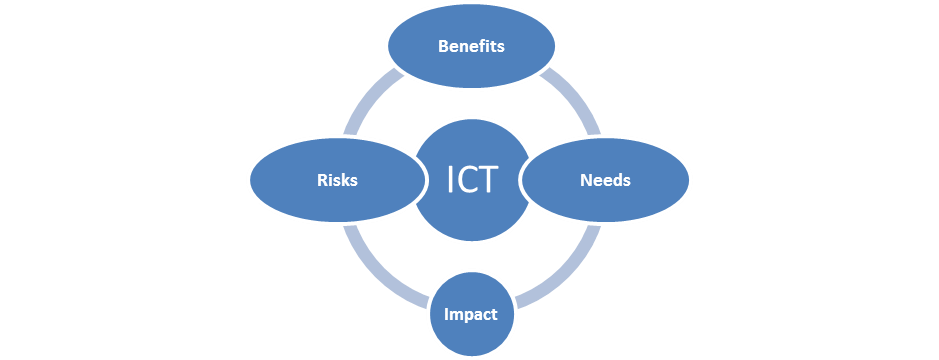
ICT Global Era Potential Benefits and Risks
ICTs refer to the various technologies that enhance the creation, storage, processing, communication and dissemination of information. ICTs also refer to the different infrastructures used in these processes, their applications and the numerous services these infrastructures render. We identify the following technologies as the elements of ICTs:
Telecommunications infrastructures have become the driving forces of ICTs; they have the capability to link all various ICT elements together.
The unit ‘ICT Tools’ will introduce you to the basic terminology and terms used in computing. The aim is not to make you an expert in the field of computing, but to allow you to feel comfortable with the technology and to participate fully and confidently in decision-making processes. To that end, the unit covers hardware, software, selection of resources, identification of appropriate usage for equipment and methods of getting best value when selecting computer resources.
ICTs refer to BNIR with perspective of Global era.
